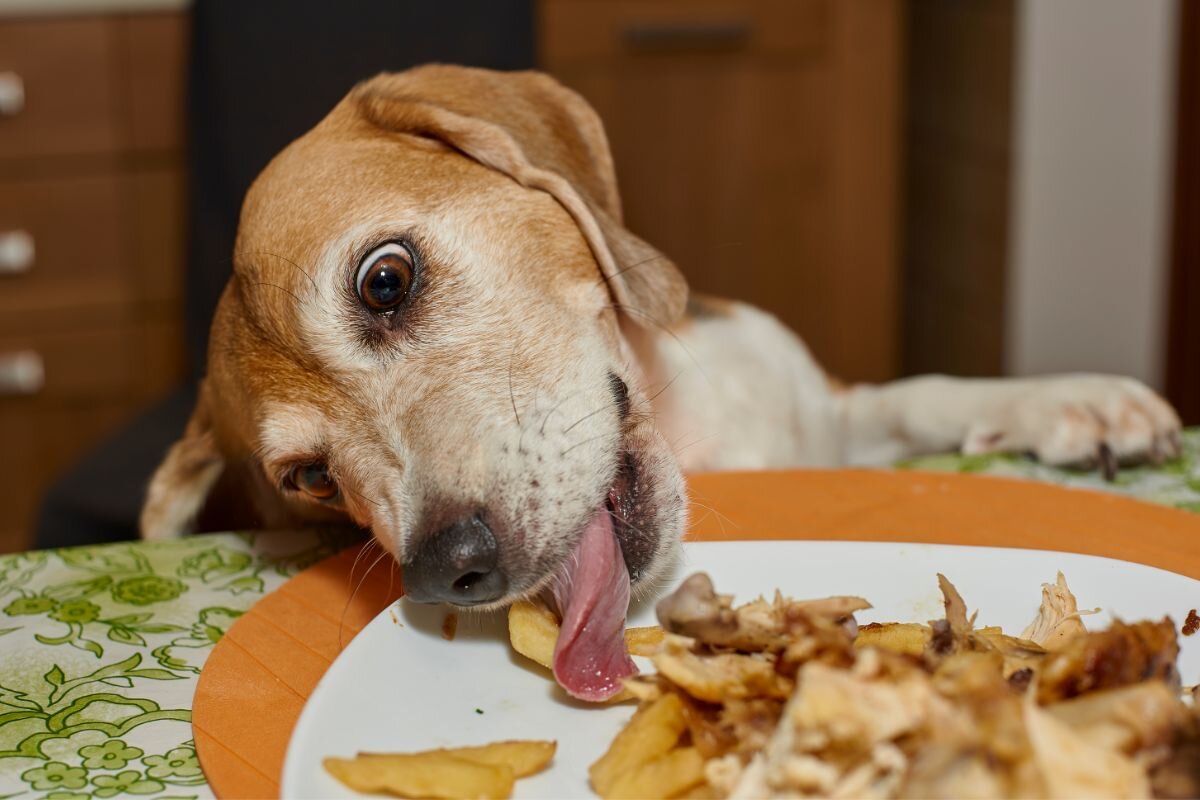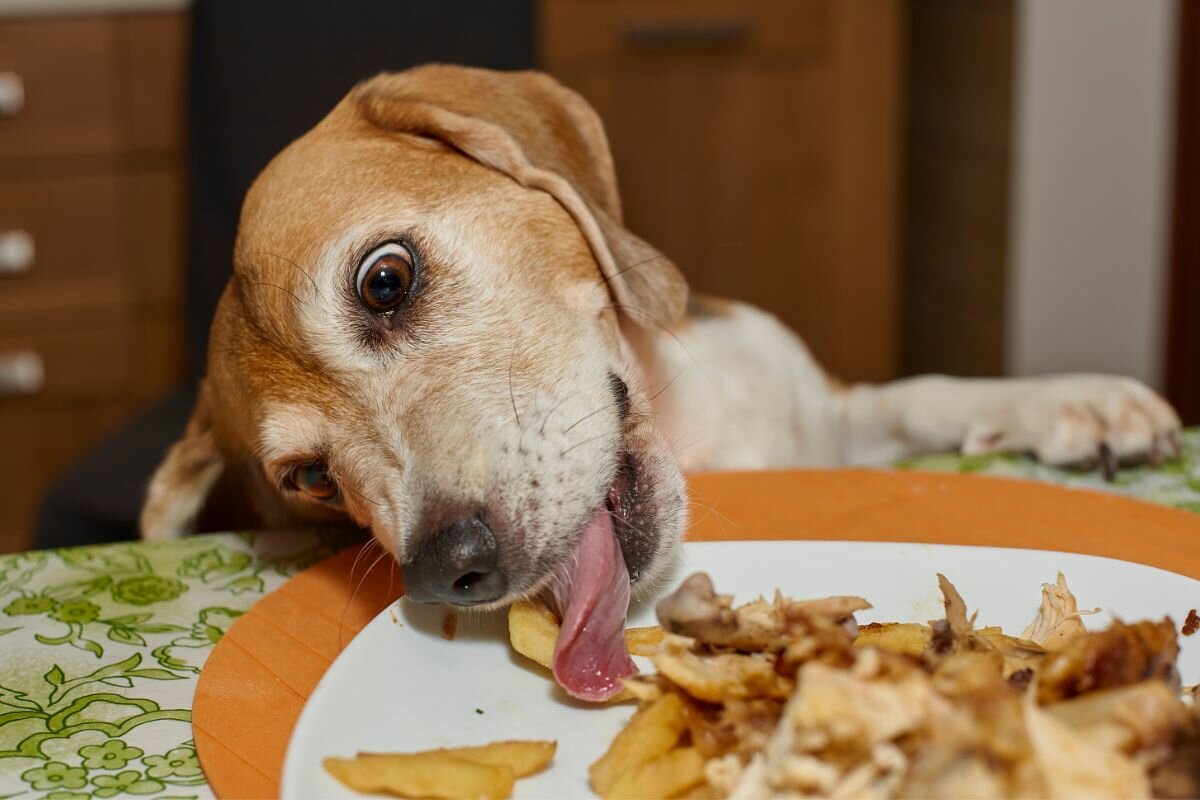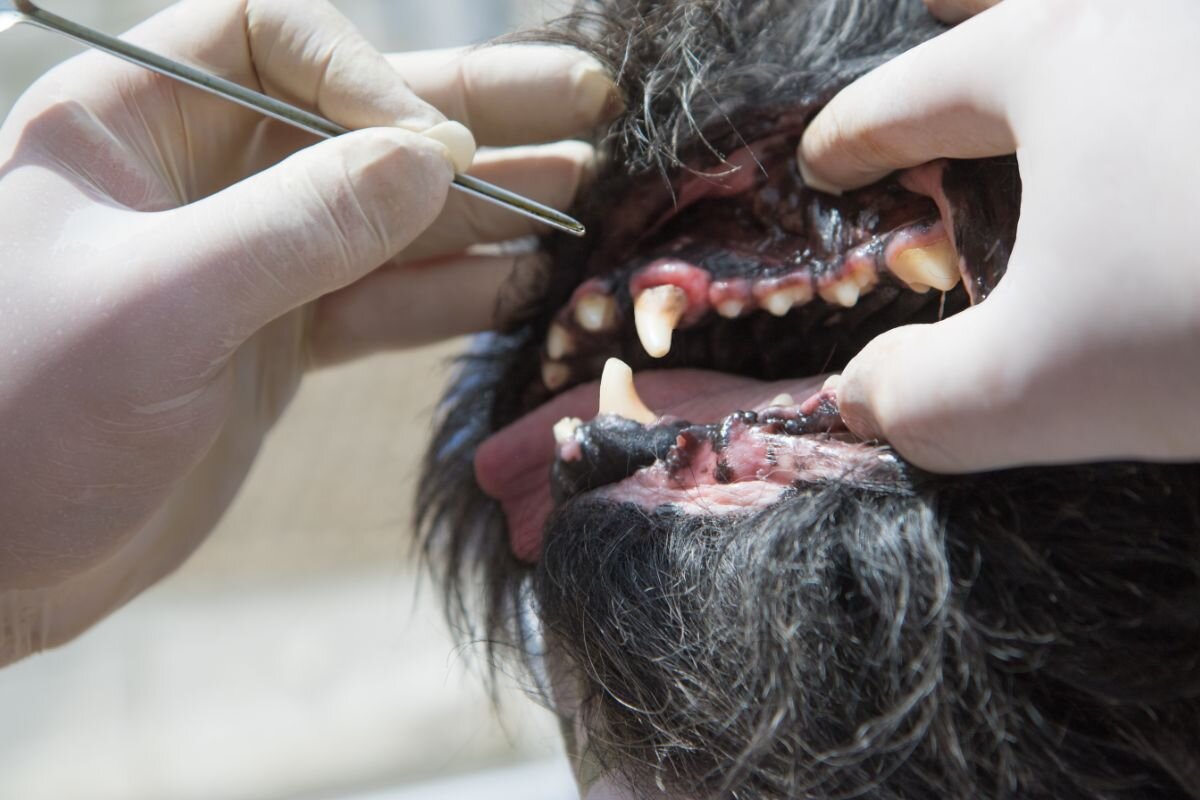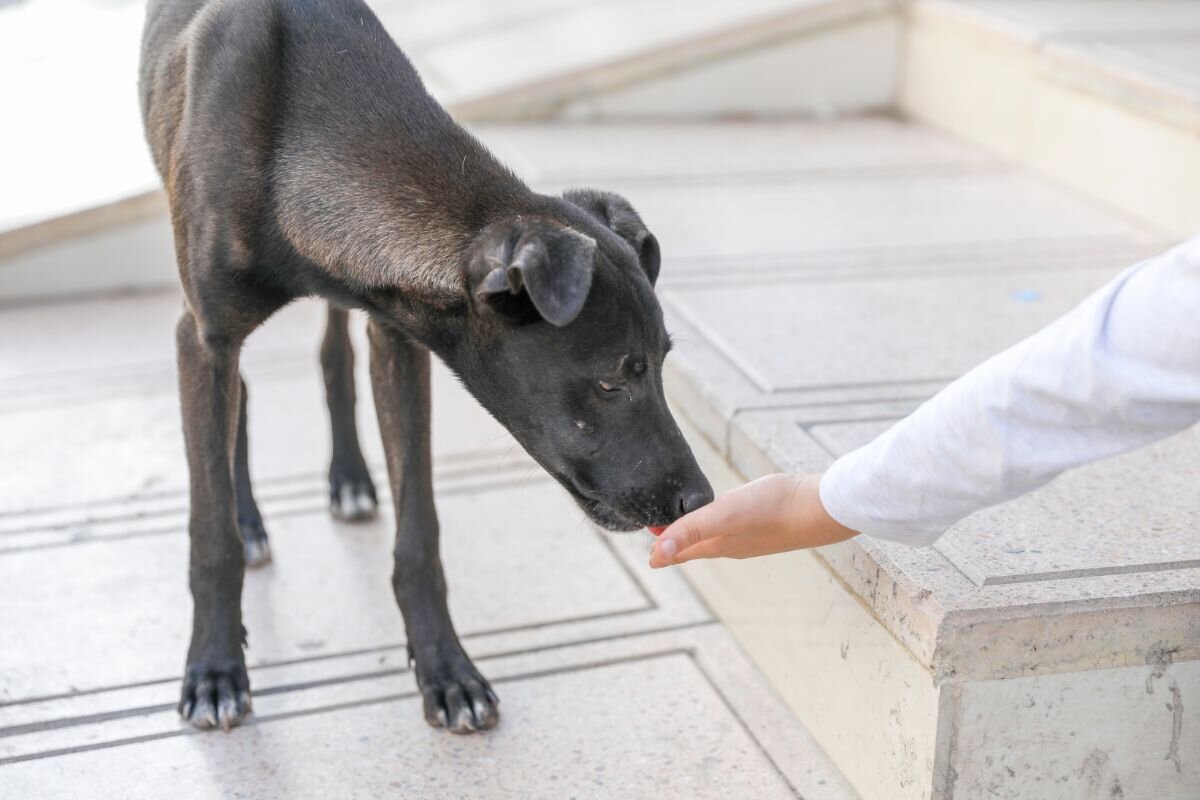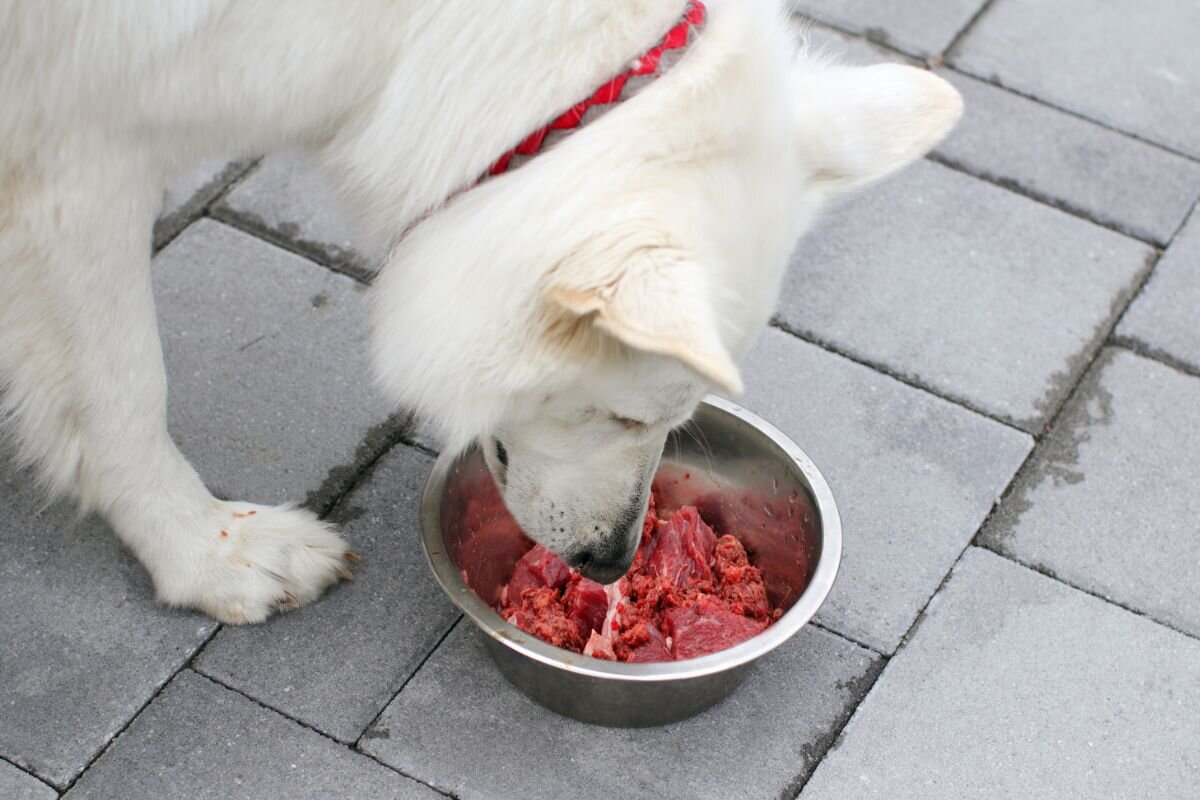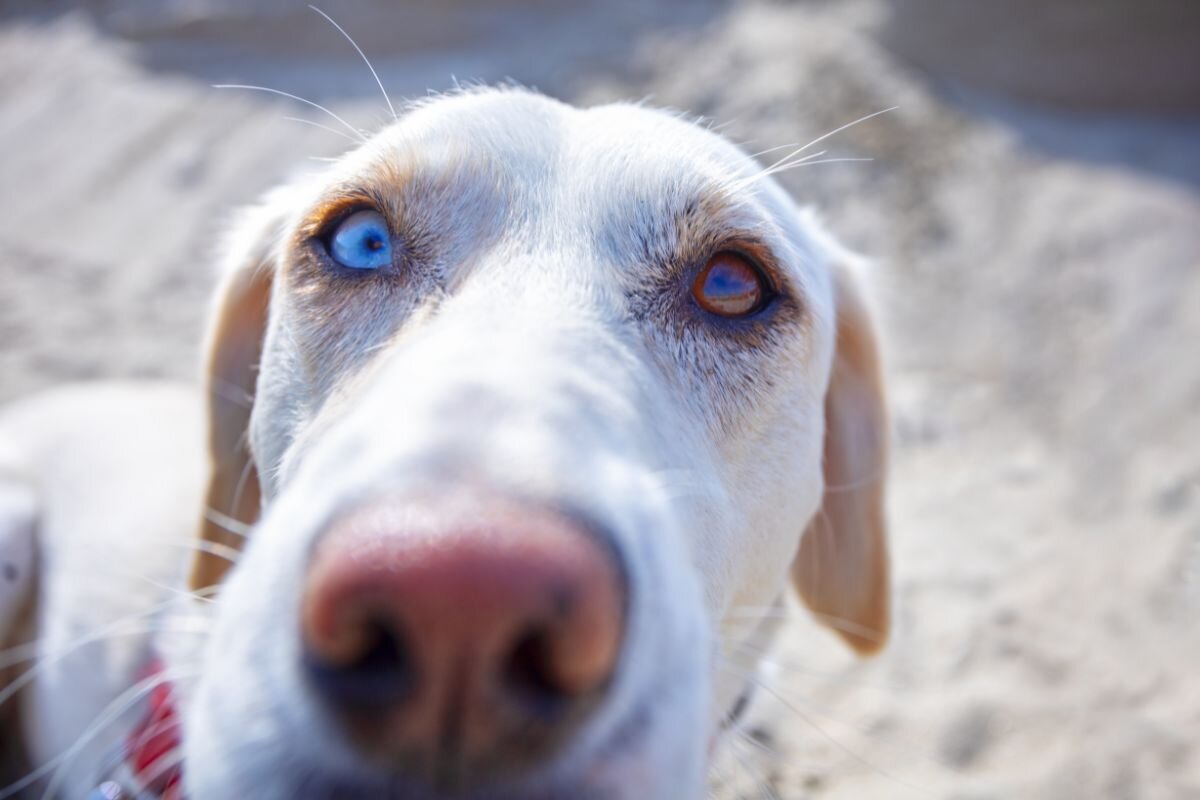Your pet has lost weight, but still has a good appetite? This situation can be very alarming for any responsible dog owner. When our four-legged friend starts to rapidly lose weight, we intuitively assume that the problem lies in the absence or decrease of appetite.
However, things may actually be the other way around! Maintaining a good appetite while losing weight signals serious disorders in the animal's body. And unfortunately, the cause is not always a simple parasitic infection or digestive disorder.
In this article, I will discuss the 10 most common reasons why a dog loses weight while maintaining a good appetite. From endocrine diseases to oncology and chronic stress - I will talk about all the potential "culprits" and focus in detail on the symptoms associated with this problem.
By understanding all the possible dangers, you will be able to recognize warning signs in time and take preventive measures before the disease progresses to an advanced stage. And when specific symptoms appear - promptly seek help from a veterinary doctor.
Why is a dog losing weight but eating well?
1. Parasitic infections
Among all the potential reasons for a dog's progressive weight loss even with a preserved appetite, parasitic invasions probably take the first place.
Various types of worms, such as toxocara, echinococcus, and sometimes even simple organisms like coccidia or cryptosporidium, literally suck nutrients out of the dog's intestines, preventing them from being absorbed by the weakening organism over time.
In the context of gradual exhaustion and weight loss, other troubling signs of parasitic infestation may appear in dogs. First and foremost are digestive disorders: vomiting, diarrhea or constipation, decreased appetite (although often the appetite is preserved!).
Severe itching of the skin, flaking, bald patches of the skin, and in puppies or weakened adult animals, parasites can even cause full-blown anemia. That's why regular deworming is the key to the health and well-being of our beloved pets!
2. Kidney disease
Kidney failure in dogs is one of the most common reasons why an elderly dog loses weight but keeps eating.
The kidneys play a key role in maintaining fluid and electrolyte balance, eliminating toxins and waste products from the body. Therefore, any malfunctions in the functioning of this vital organ lead to a cascade of problems, one of which is rapid weight loss.
Chronic kidney diseases, such as renal failure, glomerulonephritis, or amyloidosis, are common in older dogs and cats. Due to the disruption of excretory and regulatory functions, the body loses protein, glucose, electrolytes, and water with urine.
Despite maintaining an appetite and consuming a high amount of food, the animal rapidly loses weight and weakens. In addition, dehydration of the body, edema on the paws, abdominal cavity, azotemia - poisoning by protein metabolism products.
Also typical are frequent vomiting, diarrhea, frequent urination. Anemia and depression complete the disheartening picture of severe kidney pathology.
So, if you see sudden weight loss in your elderly dog or cat - do not ignore the warning signs. It's better to show your pet to an experienced veterinarian right away!
3. Liver diseases
Another common reason why an older dog may lose weight while having a good appetite is liver diseases.
The liver performs hundreds of vital functions in the body. From synthesizing proteins, fats and carbohydrates to detoxifying and neutralizing toxic substances. Therefore, any disturbances in the functioning of this unique organ can lead to the most dire consequences.
Chronic liver diseases, such as chronic hepatitis, cirrhosis, and tumors in the liver and bile ducts, are common in older dogs and cats. All these diseases lead to disruptions in the digestive, metabolic, detoxification, and many other functions of the body.
Despite maintaining or even increasing appetite, animals quickly lose weight, lose muscle mass. The coat becomes dull and brittle, the skin dry, the paws and abdomen swell due to the disruption of protein metabolism.
Other symptoms may include vomiting, diarrhea, constipation, jaundice of mucous membranes and sclera due to elevated bilirubin levels. Hepatic encephalopathy manifests as depression, disorientation, sudden barking.
Regular check-ups, abdominal ultrasound scans help detect liver diseases at an early stage and prevent severe complications such as sudden weight loss, hepatic insufficiency, and coma.
4. Dental problems
When a dog suddenly starts to lose weight while having a preserved appetite, many owners attribute this to some serious internal organ disease or endocrine pathology. And they completely forget about such an important cause as dental problems!
Meanwhile, periodontal diseases, caries, tooth loss, or jaw injuries are quite common in pets and bring a lot of suffering, including not only aching pain in the mouth but also weight loss due to the inability to properly chew food.
Even with a preserved appetite, the animal starts to ingest food almost without chewing. Poorly chewed and saliva-soaked food is absorbed much worse. As a result, the dog does not receive the necessary nutrients, calories, and, usually, loses weight.
In addition, sneezing, nasal and oral discharges with an unpleasant odor, redness, swelling of the gums, excessive drooling, asymmetry of the muzzle may be of concern.
Therefore, regular oral cavity examination, professional teeth cleaning, treatment and removal of diseased teeth, bite correction - are essential components of the health and well-being of our furry friends.
5. Oncology
Unfortunately, oncological diseases are one of the most common causes of rapid weight loss in pets. And sometimes, until the very end, they deceive the owner with the good appetite of the beloved pet.
Malignant tumors can occur in almost any organ - bones, mammary glands, lungs, liver, spleen, gastrointestinal tract, and so on. They grow, draining the body of an enormous amount of energy and nutrients.
As a result, the subcutaneous fat layer literally disappears before our eyes, and the muscle mass of the dog diminishes. Meanwhile, the poor pet, especially at first, continues to eat its favorite treats as enthusiastically as before, unaware of the terrible diagnosis!
But the tumor can also show itself with other symptoms besides weight loss. These can be coughing, shortness of breath, loss of appetite or, conversely, insatiable hunger with weight loss, as well as vomiting, constipation or diarrhea, bleeding, lameness, limb pain, and so on.
That's why it's so important to regularly examine your pet, pay attention to any worrying symptoms. And timely consult a veterinarian - because the earlier the tumor is detected, the more chances of successful treatment and saving the beloved furry life!
6. Diabetes mellitus
Diabetes mellitus is one of the common endocrine diseases in cats and dogs, which can cause rapid weight loss despite having an increased appetite.
In diabetes mellitus, the absorption of glucose from the blood is disrupted in the body, leading to hyperglycemia. Glucose begins to be excreted in the urine, taking away a massive amount of fluid from the body.
Despite a plentiful consumption of food, the body experiences "starvation" at the cellular level. Nutrients cannot be absorbed, fat and muscle tissues deplete. The animal rapidly loses weight and weakens.
The typical symptoms of diabetes mellitus, besides weight loss, are: excessive urination, increased thirst, excessive appetite. Vomiting, weakness, and depression may also be observed.
Diabetes is dangerous with complications both acute, life-threatening (hyperglycemic or ketoacidotic coma) and chronic (cataract, urinary tract infections).
Therefore, it is important to timely recognize the symptoms and start treatment under the supervision of a veterinarian. Monitoring blood sugar levels and insulin therapy help stabilize the pet's condition and prevent dangerous progressive weight loss.
7. Adrenal gland diseases
The adrenal glands are responsible for hormone production. These include cortisol (i.e., stress hormone), aldosterone (which controls sodium and potassium levels), sex hormones (testosterone and estrogen), and hormones (adrenaline and noradrenaline). Maintaining the balance of these hormones is crucial because they help regulate heart rate, blood pressure, blood sugar levels, and other parameters.
Cortisol, in particular, is a hormone that can cause weight loss if there is too much of it (i.e., Cushing's syndrome in dogs) or too little of it (i.e., Addison's disease in dogs). Dogs with Cushing's disease typically lose weight due to muscle loss. But dogs with Addison's disease experience weight loss due to poor appetite.
Moreover, dogs with Cushing's disease often have an increased appetite, hair loss, as well as increased thirst and urination. On the other hand, dogs with Addison's disease usually exhibit vague and nonspecific signs, such as lethargy, weakness, or gastrointestinal upset.
Both Addison's and Cushing's can be diagnosed with blood tests. Additionally, some dogs may need an abdominal ultrasound to detect adrenal gland tumors (one of the causes of Cushing's syndrome).
8. Heart diseases in dogs
The cardiovascular system plays a key role in transporting nutrients and oxygen to all cells of the body. Therefore, various cardiologic problems directly affect the weight of the pet and can cause rapid weight loss.
Chronic heart failure, mitral regurgitation, and arrhythmias are common in elderly dogs. The heart cannot provide adequate cardiac output, and tissues begin to experience oxygen deprivation.
Despite maintaining an appetite, catabolism intensifies, fat and muscle tissues deteriorate. The animal quickly loses weight, weakens, the skin tightens over the ribs.
Characteristic symptoms in addition to weight loss include shortness of breath, coughing, fainting, lethargy, and depression. As the disease progresses, leg and abdominal edema, nasal bleeding, arrhythmias may occur.
Therefore, it is important to regularly show elderly dogs to a cardiologist, monitor symptoms, and promptly adjust therapy. This will help improve the quality of life for pets and prevent dangerous cachexia.
9. Megaesophagus
Megaesophagus - a dangerous condition in which the esophagus expands and paralyzes. Due to impaired peristalsis, a large part of the eaten food cannot pass into the stomach and is retained in the stretched esophagus.
The dog may still have a normal or even increased appetite. However, only a small amount of food eaten flows into the gastrointestinal tract and is absorbed by the body.
Nutrients cannot meet the energy needs, exhaustion develops. The animal loses weight despite consuming a lot of food.
Other symptoms typical of megaesophagus are frequent regurgitation, food regurgitation, excessive drooling. Aspiration pneumonia may occur due to food entering the airways.
Most dogs with megaesophagus initially show good appetite. However, they quickly lose weight because even though they eat a lot of food, they regurgitate most of it. Therefore, if megaesophagus is suspected, the dog should be shown to a veterinarian urgently.
10. Stress and depression
Stress and depression are another significant reason for rapid weight loss in pets with seemingly preserved appetite.
During prolonged stress and depression of the nervous system, the production of "happy hormones" - serotonin and dopamine - decreases. This dulls the pleasure of eating. Although the dog may still eat a lot, it no longer gets pleasure and satisfaction from it.
Due to disruptions in neuroendocrine appetite regulation, the absorption of nutrients in the intestines decreases. Fat and protein breakdown intensifies, and the animal may rapidly lose weight despite having a generous diet.
Along with weight loss, typical signs of stress in pets are lethargy, loss of interest in games, commands, and petting. Sleep and appetite disturbances, anxiety, aggression/apathy can also be observed.
Therefore, it is crucial to recognize the symptoms of stress in pets, identify and eliminate the cause, and if necessary - consult with a veterinarian or behavioral specialist.
Conclusion: why is a dog losing weight despite having a good appetite?
I have tried to easily, in simple words, delve into the 10 most common reasons why a dog loses weight despite having a preserved or increased appetite.
Starting from simple parasitic invasions, digestive disorders, and ending with dangerous oncological, endocrine, cardiac diseases, and pathologies of internal organs.
The treachery of these conditions lies precisely in the fact that underneath their external well-being often lie serious disruptions in metabolic processes that are incompatible with a full life.
Therefore, at the first signs of rapid weight loss despite a preserved appetite, never ignore warning signs. It is essential to urgently show the pet to a veterinarian, undergo an examination, and establish an accurate diagnosis before it is too late.
An early start of pathogenetic treatment under the supervision of a specialist is the key to the fastest recovery of your beloved pet!

